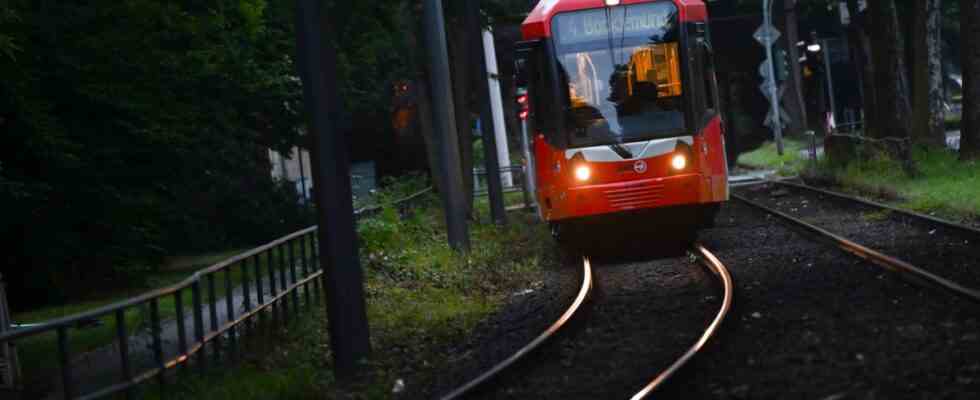For Chancellor Olaf Scholz (SPD), it was “one of the best ideas we had” during the crisis. Green leader Ricarda Lang praises it as “incredibly popular”. And Federal Transport Minister Volker Wissing (FDP) also sees a “huge success”. The nine-euro ticket has been sold 38 million times in Germany in the past few weeks. It expires on Wednesday. The Germans would not have to wait long for a follow-up solution, the Chancellor promised at a public dialogue this week. A successor solution is coming, he said. Minister of Transport Wissing is “on it”.
However, anyone who had hoped that there really would be a seamless connection was disappointed by Wissing this Friday. At a press conference in Berlin, the Federal Minister of Transport indicated that it would take weeks, probably even months, for a new nationwide ticket to come out. He sticks to his timetable, said Wissing. First he wants to look at the results of a working group on reforms in public transport, which are expected in October. Only then can the question be answered as to what a better ticket for the future could look like.
This means that a fierce dispute is brewing again in the traffic light coalition between the federal and state governments. Because the countries are calling for a completely different pace. At a conference of transport ministers, they called on the federal government to present a viable and sustainable proposal for a successor to the nine-euro ticket “promptly”. The high demand for the nine-euro ticket also clearly showed that the quality had to be significantly improved, said the chairwoman of the conference of transport ministers, Bremen’s transport senator Maike Schaefer (Greens), after a special digital meeting of the committee.
The plans also differ widely when it comes to financing. While Wissing sees the states as having an obligation, they demanded on Friday that the federal government must take over the entire financing of such a billion-dollar project. “Massive” is the annoyance at the federal minister’s inaction, said the group of state ministers, who agreed on a harsh decision in just one hour. Wissing called it “disappointing”. Germans expected politicians to present solutions instead of shifting responsibility.
In Berlin, the nine-euro ticket could be extended until the end of the year
But the dispute over the nationwide ticket is just the tip of the iceberg. Because there is more at stake behind the scenes. A fierce dispute has broken out about the general financing of buses and trains. The industry, which has been hit by the pandemic, urgently needs more money due to rising energy prices. The federal and state governments are fighting hard about the impending additional costs. In addition to the previously requested increase in the so-called regionalization funds by 1.5 billion euros per year, the state ministers called for a further 1.65 billion euros each for the years 2022 and 2023 due to the high energy prices in order to avert existential crises in transport companies. Wissing, however, has so far opposed it and first calls for reforms.
Wissing’s tough course also triggered violent reactions within the traffic light parties. Baden-Württemberg’s Transport Minister Winfried Hermann (Greens) warned about restrictions on local transport lines. “Without better financing of public transport by the federal government, states and municipalities will be forced to restrict public transport offers in regional rail and bus traffic.” CDU Transport Minister Guido Beermann warned that Brandenburg is expecting additional costs for local rail passenger transport of almost 20 percent due to the increased energy and construction prices. You can’t do that with the current resources. There was a risk of investment stops, thinning out and, in the worst case, cancellations.
“The ball is in Berlin,” says NRW Transport Minister Oliver Krischer (Greens). Krischer, who was State Secretary in the Federal Ministry of Economics until June, thinks not only financially, but also politically. “I regret that the federal government did not find a solution during the summer break,” he says. But in Berlin there are unfortunately “individuals who are on the brakes.”
The first countries are now thinking about their own solutions – and could create a new patchwork quilt. The Berlin SPD, for example, can imagine offering the nine-euro ticket in the capital beyond August. Prime Minister Franziska Giffey’s SPD proposes introducing such a regulation by the end of the year. With the ticket, according to Senate circles, owners could only drive in Berlin and no longer nationwide.

